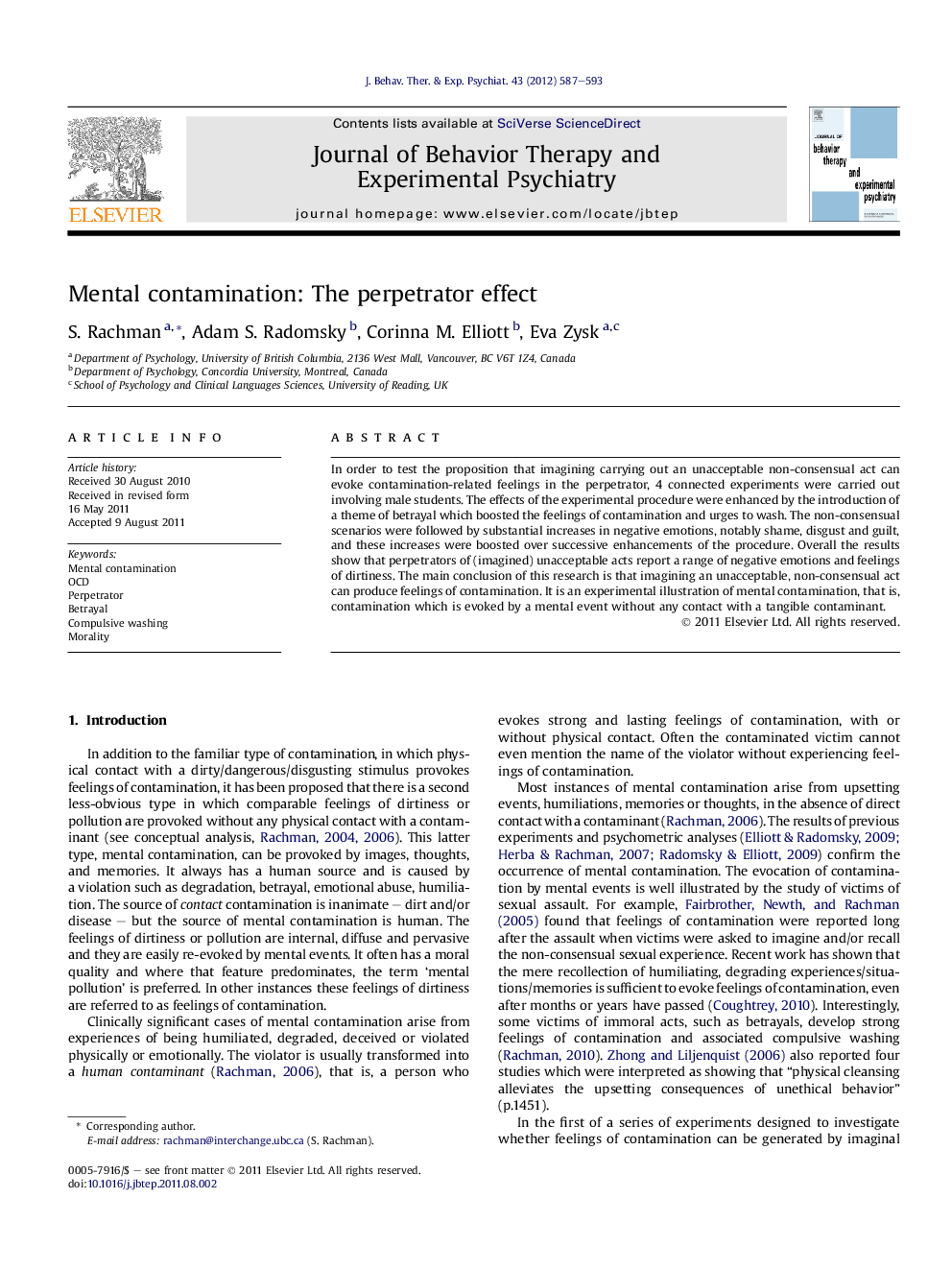| کد مقاله | کد نشریه | سال انتشار | مقاله انگلیسی | نسخه تمام متن |
|---|---|---|---|---|
| 910487 | 917468 | 2012 | 7 صفحه PDF | دانلود رایگان |

In order to test the proposition that imagining carrying out an unacceptable non-consensual act can evoke contamination-related feelings in the perpetrator, 4 connected experiments were carried out involving male students. The effects of the experimental procedure were enhanced by the introduction of a theme of betrayal which boosted the feelings of contamination and urges to wash. The non-consensual scenarios were followed by substantial increases in negative emotions, notably shame, disgust and guilt, and these increases were boosted over successive enhancements of the procedure. Overall the results show that perpetrators of (imagined) unacceptable acts report a range of negative emotions and feelings of dirtiness. The main conclusion of this research is that imagining an unacceptable, non-consensual act can produce feelings of contamination. It is an experimental illustration of mental contamination, that is, contamination which is evoked by a mental event without any contact with a tangible contaminant.
► Students who imagined themselves as perpetrators of immoral acts felt contaminated.
► Betrayal enhances the mental contamination effect.
► Feelings of mental contamination are robust.
► Feelings of mental contamination are present even in the absence of direct contact.
Journal: Journal of Behavior Therapy and Experimental Psychiatry - Volume 43, Issue 1, March 2012, Pages 587–593